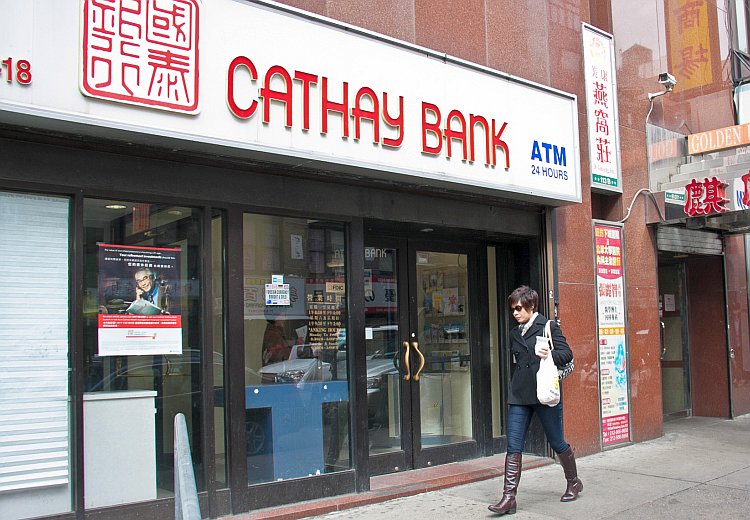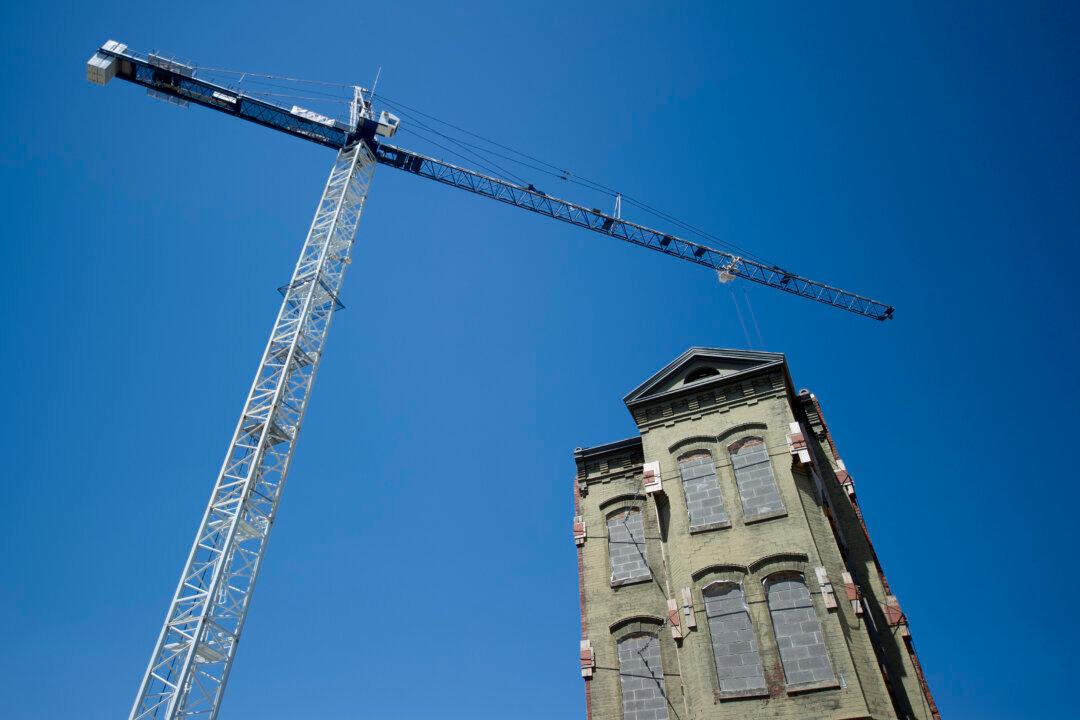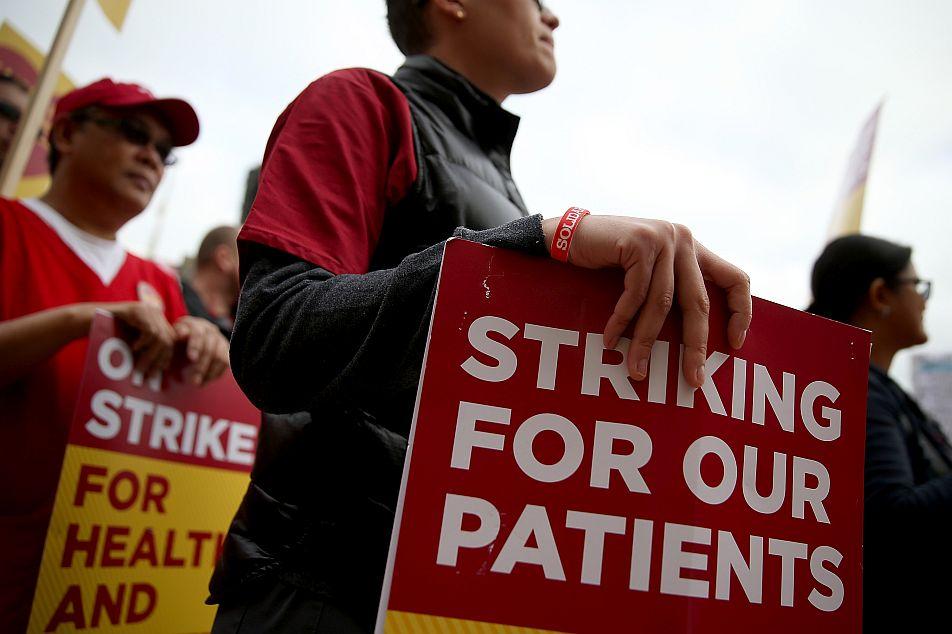It took quite some years for Chinese state-owned commercial banks to move beyond their borders. Almost all the earnings of large Chinese banks were traditionally derived from operations in their home market. China’s banks held tightly onto their turf in China, making sure not to lose control over their market.
“The comfortable situation in the domestic market gave them [China’s large commercial banks] very little incentive to go abroad. China’s financial system, which is based on the repression of households and government-controlled interest rates, has put state-owned lenders in a situation to comfortably grow revenue and profits at home,” according to a recent report from the Rhodium Group.
Many Chinese banks’ clients have been doing business abroad, which has created problems concerning the efficient flow of money into and out of China due to the lack of their country’s banks abroad.
“With a greater number of Chinese firms expanding overseas, Chinese banks need to establish overseas branches to continue serving these clients. Second, their clients increasingly demand financial services and products that require an international presence,” the Rhodium report said.
Most of all, Chinese banks have little acumen in dealing in foreign markets, and it is imperative that they get their feet wet and become competitive in the international arena. China’s banks’ personnel are unfamiliar with how to operate in foreign markets and urgently need to catch up with their foreign counterparts.
“China’s big four banks will be forced to leave their comfort zones and catch up. Overseas acquisitions and foreign operations will be a part of this learning process,” according to the Rhodium report.
Chinese Regime Gaining Foothold in America
The American media went viral, claiming that the Bank of East Asia (BEA) was going to be the first U.S. bank taken over by Chinese regime-owned banks, that is, Industrial and Commercial Bank of China Limited (ICBC), China Investment Corp. (CIC), and Central Huijin Investment Ltd. (Huijin), all of Beijing, People’s Republic of China.
However, the Bank of East Asia (BEA) is not a U.S.-owned entity. It was incorporated in Hong Kong in 1918 and is a Hong Kong-based bank that also operates in mainland China. BEA established its first and second branches in the United States in 1984 and 1989 respectively.
In August 2002, BEA purchased the Grand National Bank based in Alhambra, Calif., which became the first subsidiary of BEA-US. BEA thus established its footprint in the United States and changed its name to the Bank of East Asia (U.S.A.) N.A. (BEA-USA), but the ultimate owners are not American.
In 2006, BEA-USA bought National American Bancorp to gain a foothold in the San Francisco market. To date, BEA-USA operates 13 branches in the United States, with 3 in New York and 10 in California.
The Federal Reserve indicates that ICBC’s assets are in the range of $2.5 trillion, and the Chinese regime owns directly and indirectly about 70.7 percent of ICBC through the Chinese state-owned Ministry of Finance, CIC, and Huijin.
“In the United States, ICBC operates an uninsured state-licensed branch in New York City and owns Industrial and Commercial Bank of China Financial Services LLC (‘ICBCFS’), New York, New York, a registered broker-dealer that engages in securities brokerage and riskless principal activities,” according to the U.S. Federal Reserve System’s Orders on Banking Applications.
In 2010, BEA began to divest its branches by selling 70 percent of BEA Canada to ICBC. On May 9, BEA received approval from the U.S. Board of Governors of the Federal Reserve System to sell 80 percent of its U.S. branch holdings to ICBC, CIC, and Huijin, with the option to sell the remaining 20 percent in about 18 months to ICBC.
Also on May 9, the three Chinese state-owned companies, ICBC, CIC, and Huijin, were approved by the Federal Reserve “to become bank holding companies under section 3 of the Bank Holding Company Act of 1956, as amended (‘BHC Act’), by acquiring up to 80 percent of the voting shares of The Bank of East Asia (U.S.A.) National Association (‘BEA-USA’), New York, New York,” according to the Federal Reserve Order.
Making the Plunge
“By September 2011, Chinese banks had established 14 branches [which include several Hong Kong nongovernmental-owned banks] or offices in the United States. ... Total assets of Chinese banks in the U.S. have grown from less than $10 billion in 2008 to more than $20 billion in 2011,” the Rhodium report states.
In 1997, The Board of Governors of the Federal Reserve System approved the application of two Chinese regime-owned enterprises, ICBC and the Agricultural Bank of China (ABC), to open a representative office in New York. On Oct. 22, 2002, China Merchants Bank (CMB) was approved to open a representative office in New York. A representative office mainly does liaison work and generally is the first step before setting up a branch in a foreign country.
On Aug. 31, 2010, the Federal Reserve gave approval for CIC of Beijing to purchase 10 percent of the voting stock of Morgan Stanley, New York.
“CIC is a sovereign wealth fund [a state-owned fund of a country’s financial assets] organized by the Chinese government for the purpose of investing its foreign exchange reserves,” according to the Federal Reserve.
Between Oct. 22, 2002, and May 2012, the Federal Reserve approved nine requests from Chinese state-owned banks to open a branch in the United States.
Chinese State-Owned Branches in the U.S.
| Date Federal Reserve Approved or Opened | Chinese State-Owned Bank | Location | FDIC Insured? |
| 1991 | Bank of Communications Co. Ltd. | New York | No |
| 10/22/2002 | China Merchants Bank Co. Ltd. | New York | No |
| 2007 | Bank of China Ltd. (BOC) | New York | Yes* |
| 2007 | Bank of China Ltd. (BOC) | New York | Yes* |
| 11/08/2007 | China Merchants Bank Co. Ltd. | New York | No |
| 08/05/2008 | Industrial and Commercial Bank of China Ltd. (ICBC) | New York | No |
| 12/08/2008 | China Construction Bank Corp. | New York | No |
| 04/08/2011 | Bank of Communications Co. Ltd. | San Francisco | No |
| 05/09/2012 | Bank of China Ltd. (BOC) | Chicago | No |
| 05/09/2012 | Agricultural Bank of China Ltd. (ABC) | New York | No |
*FDIC insures checking and savings accounts, as well as certificates of deposit, for up to $250,000.
Federal Reserve Blindsided
“China’s state-run banks have made what will prove to be a barge-full of bad loans over the past several years, financing a property bubble and a whole host of officially-sponsored boondoggles. ... Their reported NPL [nonperforming loan] ratios (approximately 1%) are a joke, which means their supposed profits (which Wen worries are too large) are a lie,” according to an April article by Patrick Chovanec on the Wordpress website.
The Federal Reserve stated in its approval order for BEA-USA and the three Chinese regime-owned banks to become bank holding companies that ICBC’s financial wherewithal, which includes nonperforming loans, was in good standing and warranted approval.
The Federal Reserve ignored persistent economic and financial analysts’ opinions and reports that indicate that the Chinese state-owned banks are not forthcoming concerning nonperforming loans, mostly for funds provided for local projects and real estate.
In short, “whether anyone realizes or admits it or not, China’s banking system is an absolute mess,” Chovanec said.
The Epoch Times publishes in 35 countries and in 19 languages. Subscribe to our e-newsletter.






